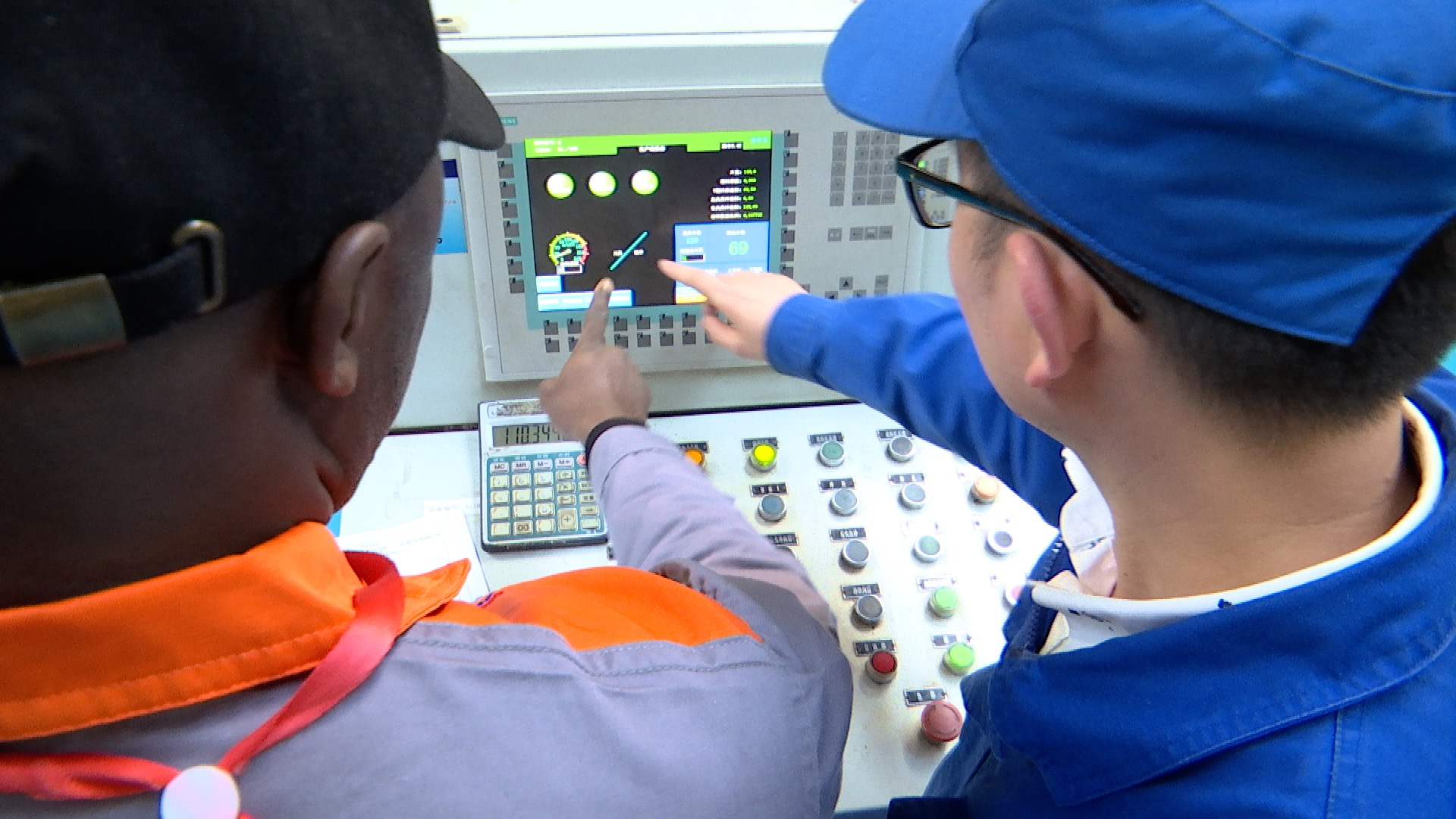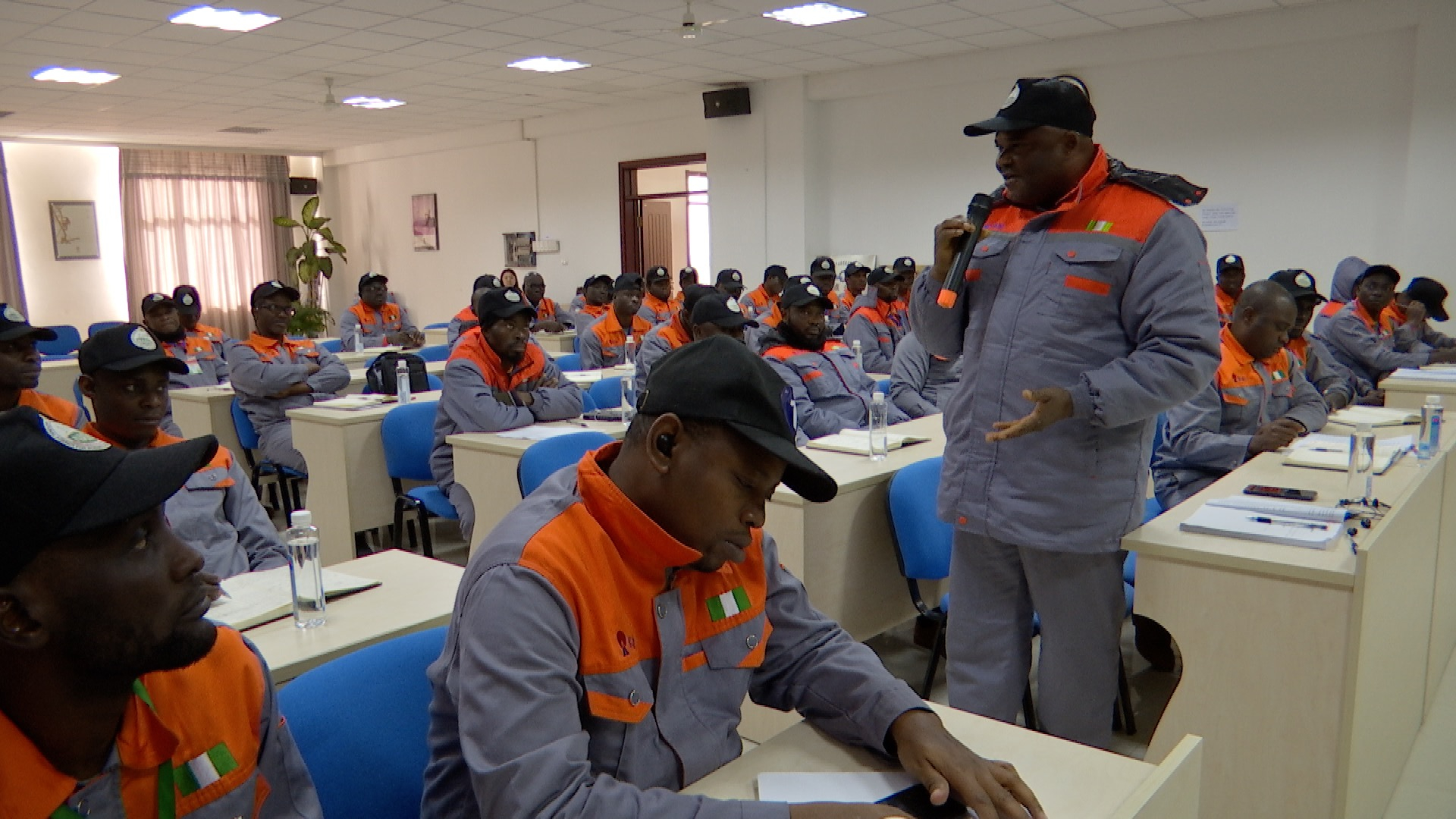03:32

China's northeastern industrial city of Anshan is hosting a group of 60 Nigerian electricians. They are receiving comprehensive knowledge of power transmission and transformer manufacturing from local Chinese company Huaye, learning theories in the morning, and practicing skills in the afternoon. It's all part of a major electrical project with Nigeria that aims to advance its access to stable electricity.
Salihu Muhammed Zaki, team leader of the Nigerian technicians, said his country has generators but is poor in transmission and distribution capability. "We are optimistic that by the time we get back to Nigeria, we'll replicate what we have seen here and learnt here,"said Zaki.
It's not the first time that the African country has sought a breakthrough in this area. Nigerian experts said they used to buy and install foreign equipment, until they realized the need to make and maintain their own. That has also brought new opportunities for Liaoning Huaye Group which has done a lot of business with Africa in electrical engineering over the past decade, especially with the Belt And Road Initiative.

Nigerian electricians learning theories of power transmission and distribution in class. /CGTN Photo
Nigerian electricians learning theories of power transmission and distribution in class. /CGTN Photo
"But we felt that we were giving a man a fish and only feeding him only for a day," said Ma Liming, Chairman of Huaye. "So we undertook the project of Electrify Africa proposed by Nigeria, in terms of training, building factories, and long-term maintenance," Ma added.
What the company offers during the training is not just a comfortable environment that makes its Nigerian friends feel at home, but also a professional team, an open mind and a detailed schedule that allows the Nigerian engineers to efficiently get what they need. In the most recent test, nearly all the trainees got good marks. They told CGTN that they will be expected to guide more experts to further electrify their country back in Nigeria so they have to work hard.
Such a positive outcome is mutual — Chinese engineers at Huaye now understand more about the specific needs of the African market. This will help them create better energy systems, such as those that can withstand variations in special weather conditions.

Nigerian electricians practicing skills of designing, manufacturing, assembling and maintaining electrical equipment. /CGTN Photo
Nigerian electricians practicing skills of designing, manufacturing, assembling and maintaining electrical equipment. /CGTN Photo
Ma believes that only when both sides work together towards the same goal and do what the other side thinks is appropriate that good collaboration can be created. "Our country calls to respect the choice of the African people on their own affairs. So our project with our African brothers has no additional ideological provisions. We only talk about technology, science, industrial development and how it can benefit African people," Ma emphasized.
In recent years, China has continued accelerating all-round cooperation with African countries in line with the unfolding Belt and Road Initiative — among which, efforts in the energy sector are crucial to meet the ever-increasing demand for electricity in Africa. While the Obama-proposed Power Africa initiative has reportedly made slow progress in the past six years, Nigerian experts are still confident that working with China in the power sector will open a new chapter for their country.
Zaki believed that the availability of stable electricity will benefit Nigeria's engineering farms, steel company, chemical company textile, food processing, SMEs, and thus will boost the economic group of the country, making more job opportunities, and less poverty.
When the six-month training camp is over, the project will move on to the next stage to help form an electrical industrial cluster in Nigeria.
And more Chinese companies are ready to take part in it. Both sides believe it will make a big difference, not only to Nigeria alone but soon the whole continent, much of which is starved for electricity.